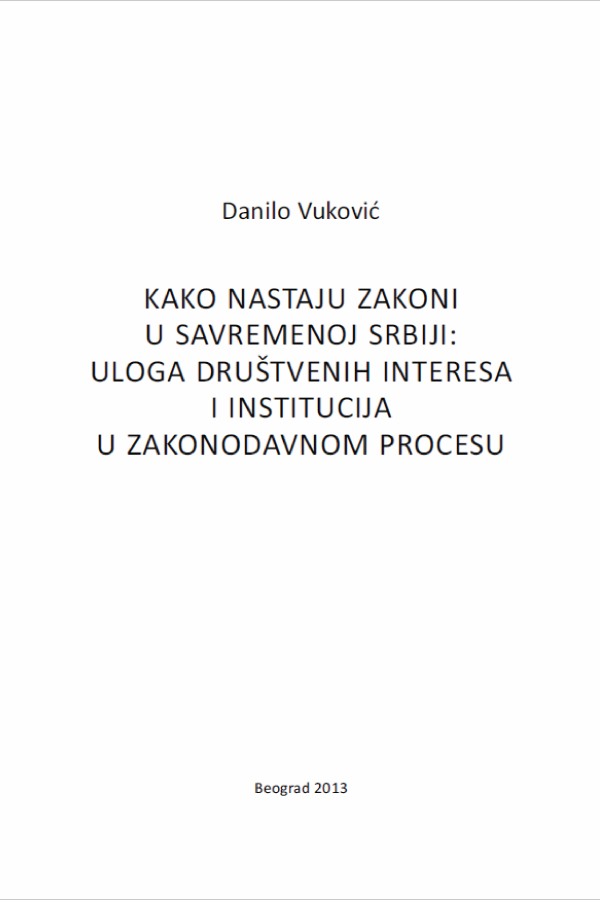This Study was developed on the basis of a survey on the influence of social interests and institutions on the legislative process conducted by SeConS during 2012 and 2013. The central subject of research was the role of the Parliament in the legislative process, MP behaviour and practices for adopting laws in the Parliament. Analysis included processes for drafting laws by relevant ministries and working groups.
Findings of this research led to the conclusion that the legislative activity of the National Assembly of the Republic of Serbia is predominantly a formal mechanism for adopting laws prepared by the executive power, without having any substantial impact on the contents of the law. MPs have, on average, less than a day to discuss each law. MPs do not protest this superficial role of legislative power to any large extent, mostly as they are overloaded with work due to the quantity of legal acts, insufficient competencies and lack of expert support.
Research indicates that relevant ministries play a crucial role in the process of drafting legislation. However, they often lack sufficient capacities in the area of analysis and creating public measures, and rely on external resources – experts from academic circles, international and non-governmental organizations, and even the private sector. In the process of drafting legislation, they represent their own professional views and values, but also the interests of organizations which intercede in their legislation-related activities, and finally, the interests of their professional communities as well. This is why the influence of elites and sub-elites is decisive for the final form of the law.













